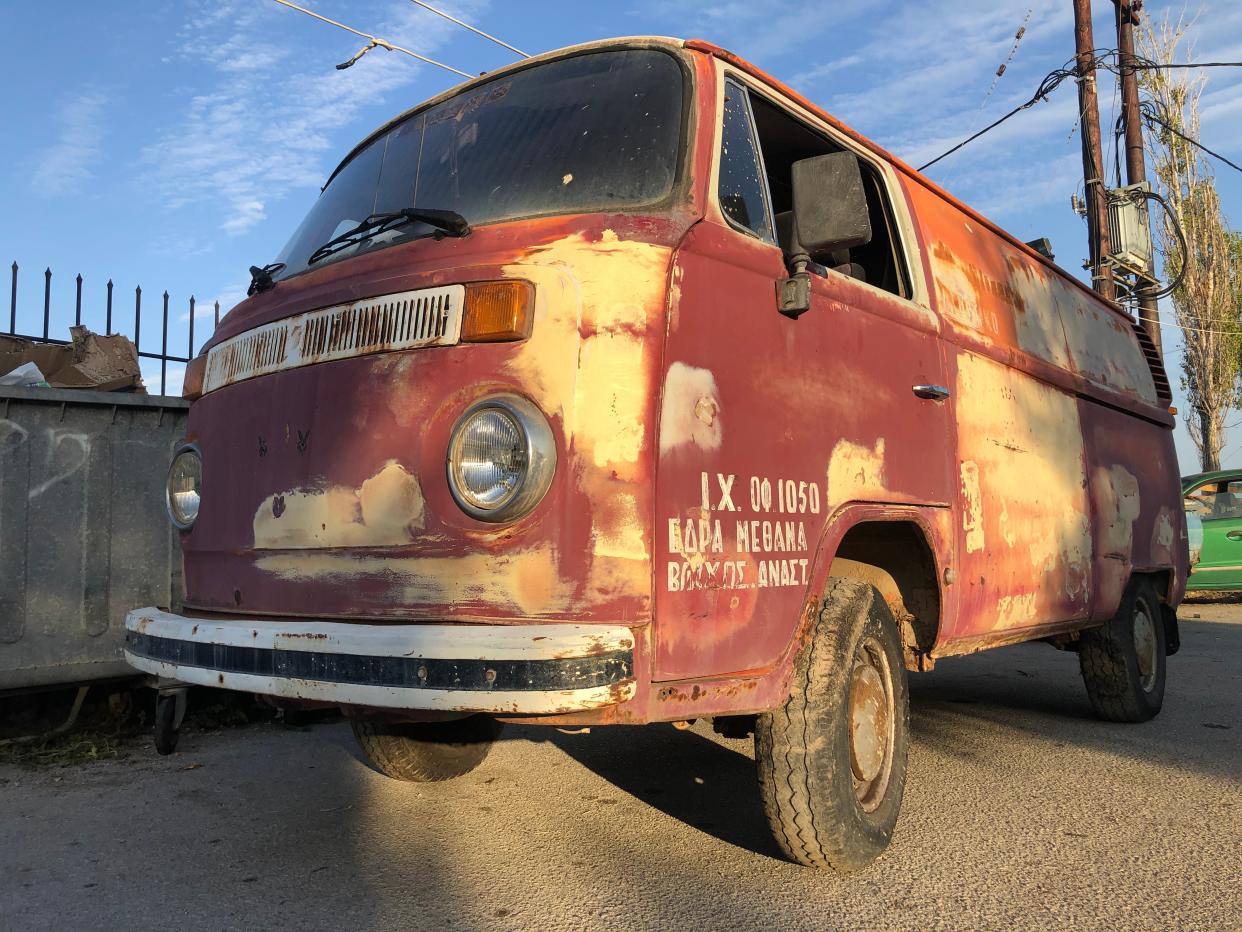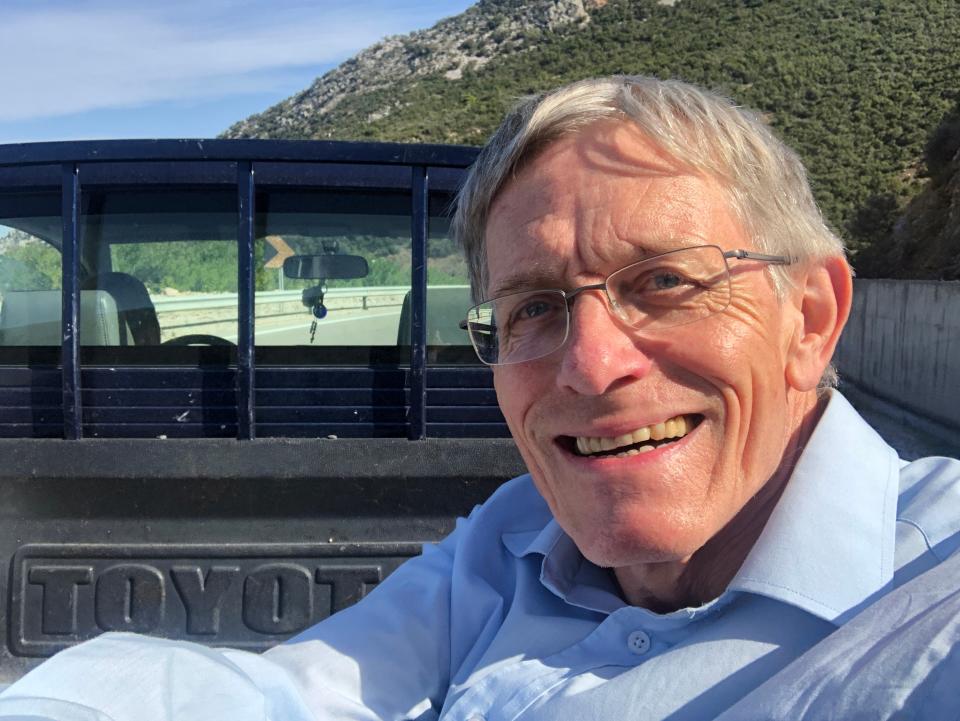Hitchhiking can set you free, even in a pandemic

Free expression: an ancient VW van along the road to Poros
(Simon Calder)The Sun and Sand Cafe is planted prettily on the beach just beside the eastern entrance to the Corinth Canal. At high noon on the final Sunday of October, I sipped the last sweet drops of a Greek coffee then walked through a pine-scented wood to the highway.
The next bus south along the road that shadows the shore of the Saronic Gulf was scheduled for teatime on Monday. I took up position beside a petrol station and extended my thumb.
Within a minute, I was sprinting towards the car that had pulled up 20m beyond.
Or was it a dance of joy? That is the assertion of an anthropologist named Patrick Laviolette in his new book, Hitchhiking: Cultural Inroads.
“Hitchhikers often speak with their feet,” he writes. “They are used to waiting and waiting, often in silence. With the thrill of getting a lift shaking them out of their little world. This usually involves a little run to get their bags, in an effort to depart as quickly as possible.
“This is both a demonstration of respect towards the driver’s time and the result of a physical release – a little symbolic dance of joy, after moments – sometimes many hours – of idleness.”
For me, hitchhiking has always been about freedom: to travel as far as desire and human generosity can take you, and to meet people with whom you would never normally interact. The two occupants turned out to be friendly and fascinating digital nomads from California on a European road trip.
They told of their analogue adventures through a digital world since leaving California to explore Europe. London, Venice, Ljubljana and Zagreb had hosted them, and now it was the turn of Greece.
The Greek entry to the 1980 Eurovision Song Contest (which as you no doubt recall was held in the Hague) was “an upbeat tune called Autostop sung by Anna Vissi & The Epikouri”, according to the anthropologist.
“The word autostop is itself repeated 37 times in the lyrics, which generally praise this practice as one of the best ways of seeing the world, even claiming that one can go as far as China.”
In the 40 years since Anna and her fellow musicians finished 13th out of 19, the appetite for autostop has dwindled. “Once a ubiquitous phenomenon of modern societies most of the world over, hitchhiking now seems to be nearly extinct,” Dr Laviolette writes.
Certainly the number of hitchers on the roads of Greece and elsewhere has declined almost to zero. Just as well, I mused, after my nomadic friends dropped me off and sped away along the highway deeper into the Peloponnese: no competition for lifts from the sparse traffic along this branch road to almost nowhere.
On a sunny Sunday afternoon, I was still 40km short of the port of Galatas, from which ferries shuttle across to my target, the isle of Poros.
Cars and trucks sporadically speeding past supported another observation by Dr Laviolette: “The freedom associated with being by an open road conceals a shadier side of the human psyche, where rejection is the norm.”

Simon gets a pick up on his journey beside the Saronic Gulf
Simon CalderFinally a battered blue Toyota pickup drew up. But in the age of coronavirus, the transaction between driver and hitcher – donor and recipient – has new twists. I tried the passenger door, but found it locked. The driver made no attempt to open it. Instead he gestured to the (fortunately vacant) rear of the truck.
There is no better way to experience this spectacular coast road than from the back of a pickup. Instead of a windscreen view, you get a widescreen panorama of a sapphire sea speckled with islands that retreat into the haze – plus a few bruises as you bounce around the metalwork.
“A social metaphor of the embodied imagination,” is how Dr Laviolette describes his experience of hitching.
I’ll stick with mine: a series of transient encounters that combine transportation with the kindness of strangers to set you free.
‘Hitchhiking: Cultural Inroads', by Patrick Laviolette, is published by Palgrave Macmillan, £69.99 hardback; a cheaper paperback will appear next year
Read More
The passports restoring the freedom to travel that Brexit takes away


